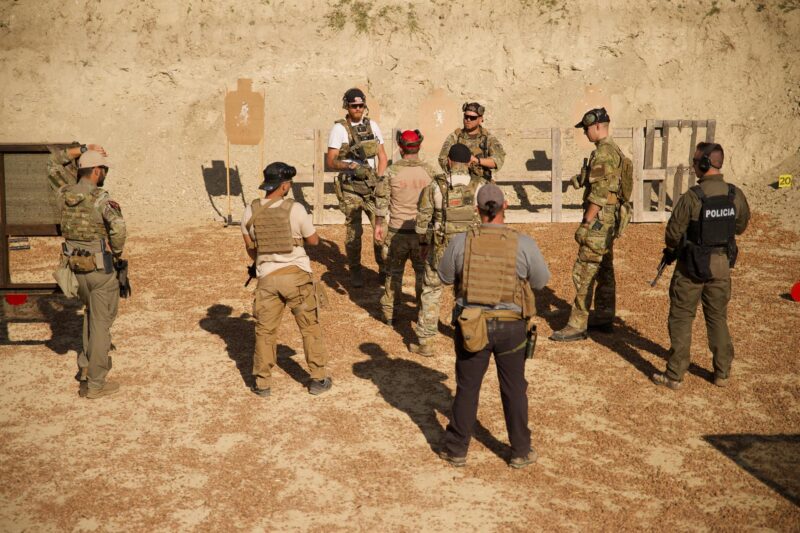In a world where the stakes of personal safety are continually escalating, specialized executive protection programs have emerged as a crucial line of defense for high-profile individuals and organizations. These programs offer a suite of tailored security services designed to mitigate risks and ensure peace of mind.
However, as with any protective measure, there are both advantages and drawbacks to consider. On one hand, the presence of seasoned professionals, equipped with advanced training and extensive resources, can provide a formidable barrier against threats.
Conversely, the costs involved and the potential for overreach can raise ethical questions, sparking debate among stakeholders. Navigating this landscape requires a nuanced understanding of the complexities involved, as the implications of choosing such programs extend far beyond mere security measures, impacting personal privacy, operational dynamics, and organizational reputations.
As we delve deeper into the pros and cons of specialized executive protection, it’s essential to evaluate not just the immediate benefits, but the broader consequences that may arise in our increasingly unpredictable environment.
Understanding the Need for Specialized Programs

In today’s increasingly unpredictable world, the demand for specialized executive protection programs has surged, reflecting a convergence of complex threats that affluent individuals and high-profile executives face daily. Traditional security measures, while essential, often fall short in addressing the multifaceted nature of these risks, which can range from targeted attacks to digital vulnerabilities.
Specialized programs, in response, offer tailored strategies that incorporate advanced training, cutting-edge technology, and in-depth risk assessments. They delve deep into the nuances of personal security, emphasizing not just physical safety but also the psychological aspects of protection.
As organizations grapple with the ever-evolving landscape of threats, the necessity for such bespoke solutions becomes undeniable; they ensure that executives not only navigate their daily lives securely but also maintain a sense of normalcy amid potential chaos.
Enhanced Security Measures

Enhanced security measures are a cornerstone of specialized executive protection programs, designed to address an array of evolving threats that high-profile individuals face today. These programs encompass a comprehensive suite of strategies, including advanced surveillance technologies, risk assessments tailored to specific environments, and a rapid response capability that can mean the difference between safety and crisis.
Furthermore, trained professionals employ a variety of techniques—ranging from unarmed self-defense to intricate evacuation protocols—ensuring that executives are shielded from unanticipated dangers. Yet, it’s not just about physical security; an element of psychological safety is integrated, fostering a sense of confidence and peace of mind for those under protection.
In this volatile world, the implementation of these heightened security measures becomes not just a precaution but a vital necessity for anyone in the public eye.
Tailored Risk Management Strategies

Tailored risk management strategies are essential components of specialized executive protection programs, designed to adapt to the unique threats faced by high-profile individuals. Each executive’s lifestyle, role, and industry context necessitate a bespoke approach, blending various security protocols and contingency plans.
For instance, while some may require advanced travel security and threat assessment during public appearances, others might need more discreet surveillance and personal security detail in their everyday settings. The flexibility of these strategies allows for the integration of cutting-edge technology with the intuitive expertise of seasoned professionals, ensuring a multifaceted defense against potential risks.
By continually assessing and refining these strategies, organizations can not only enhance their protection efforts but also build resilient frameworks that adapt to evolving threats and changing circumstances. Such meticulous attention to detail underlines the stark contrast between one-size-fits-all solutions and models designed to preemptively address specific vulnerabilities.
Conclusion
In conclusion, specialized executive protection programs offer both significant advantages and notable challenges. On one hand, these programs can provide invaluable training and knowledge for professionals tasked with safeguarding high-profile individuals, enabling them to develop essential skills in risk assessment, personal safety, and crisis management.
However, they can also come with drawbacks such as high costs, varying quality of training, and the potential for over-reliance on protective services. Institutions like Pacific West Academy exemplify the potential of well-structured training programs in this field, promoting a comprehensive understanding of executive protection principles. Ultimately, organizations and individuals must carefully weigh these pros and cons to determine the best approach to personal safety and security in an increasingly complex world.


